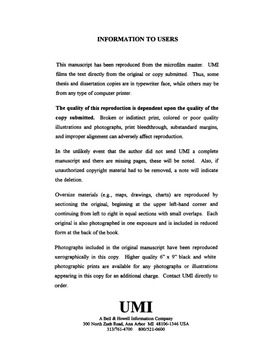| dc.contributor.advisor | Nussbaum, Jon F., | en_US |
| dc.contributor.author | Bethea, Mary Elizabeth Sparks. | en_US |
| dc.date.accessioned | 2013-08-16T12:30:04Z | |
| dc.date.available | 2013-08-16T12:30:04Z | |
| dc.date.issued | 1998 | en_US |
| dc.identifier.uri | https://hdl.handle.net/11244/5649 | |
| dc.description.abstract | The purpose of this dissertation is to examine the effect an older adult parent living with an adult child/spouse may have on the communication in the long-term marital relationship. This study is designed to examine the ways in which adult triadic relationships form and influence a primary dyad over time. The present study used a retrospective (historical cohort study) design to determine the effect of a parent on the relational change of the adult marital dyad for two reasons. First, as Kirk (1995) states, "A retrospective study is particularly useful for studying the relationship between variables that occur infrequently or variables whose occurrence is difficult to predict" (p. 9). Second, a retrospective study may also be useful when there is a long time interval between the cause and effect (Kirk, 1995). Change in this context may be best gathered through retrospective data. Specifically, this dissertation proposes an investigation into the communicative changes that occur within long-term marriages of couples after a parent moves into their home. An examination of adult marital couples' communicative changes before and after a parent moved into the household were assessed from the treatment group (parent group), and adult marital couples' communicative changes were assessed from the no treatment comparison group (no parent group). The primary goal was to examine the effect of a parent on the adult marital dyad by assessing the communicative competent behavior, communicative satisfaction, marital quality, dyadic adjustment, and relational communication of the marital dyad after the parent moves into the child's home. | en_US |
| dc.description.abstract | Results indicate a number of significant differences for couples married 25 years who have a parent living in the household (28 couples) when compared to couples who do not have a parent living with them (34 couples). Least squares means results show that parents living with adult children and their spouses share less communicative competent behaviors, have higher communicative satisfaction, higher dyadic adjustment, and less relational communication. Overall, four important results are revealed in this study. First, MANOVA results indicate that when not controlling for any variables in a single model overall marital communicative change exists for couples living with a parent. Second, MANCOVA results indicate that overall communicative change does not exist for couples living with a parent when controlling for the 13-pretest measures in a single model. However, ANCOVA results indicate that the effect of a parent living in the adult child/spouse household on the long-term marital relationship exists in a positive way when it comes to communicative satisfaction and marital/dyadic adjustment when pretest measures are statistically controlled. Additionally, the effect of a parent living in the adult child/spouse household on the long-term marital relationship exists in a negative way when it comes to communicative competent behaviors and relational communication when pretest measures are statistically controlled. Finally, an overall parent effect was found for couples living with a parent utilizing an overall repeated measures design. The results of this study should be interpreted within the context of the limitations of the study. | en_US |
| dc.format.extent | xv, 234 leaves : | en_US |
| dc.subject | Aging parents Family relationships. | en_US |
| dc.subject | Sociology, Individual and Family Studies. | en_US |
| dc.subject | Speech Communication. | en_US |
| dc.subject | Gerontology. | en_US |
| dc.subject | Parent and adult child. | en_US |
| dc.subject | Communication in marriage. | en_US |
| dc.title | The communicative impact of an older adult parent on the adult child/spouse long-term marital relationship. | en_US |
| dc.type | Thesis | en_US |
| dc.thesis.degree | Ph.D. | en_US |
| dc.thesis.degreeDiscipline | Department of Communication | en_US |
| dc.note | Adviser: Jon F. Nussbaum. | en_US |
| dc.note | Source: Dissertation Abstracts International, Volume: 59-07, Section: A, page: 2733. | en_US |
| ou.identifier | (UMI)AAI9839783 | en_US |
| ou.group | College of Arts and Sciences::Department of Communication | |
